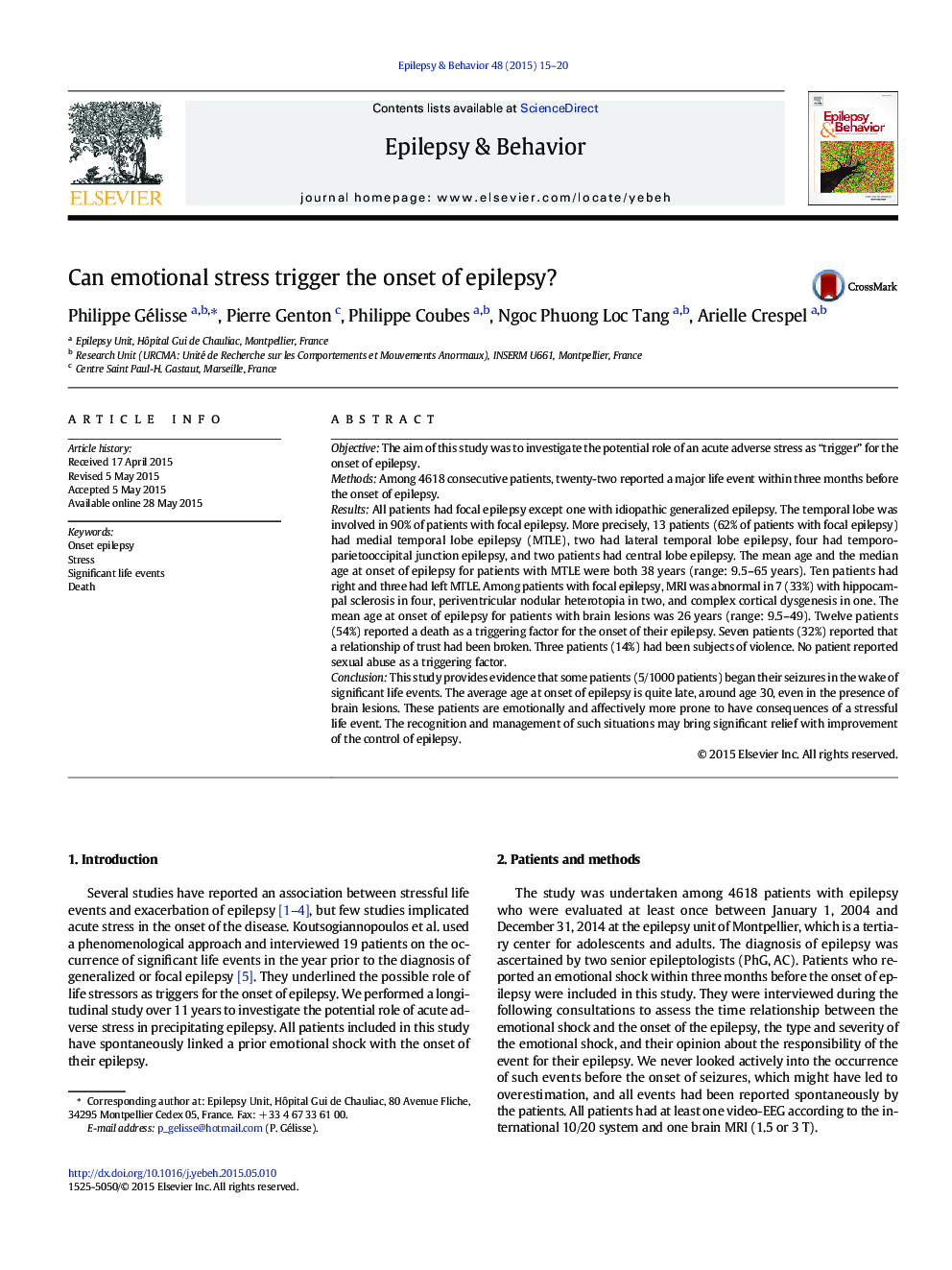| Article ID | Journal | Published Year | Pages | File Type |
|---|---|---|---|---|
| 6011359 | Epilepsy & Behavior | 2015 | 6 Pages |
â¢Onset of epilepsy after a stressful life eventâ¢More than half of the patients reported a death of a loved one as a triggering factor.â¢Medial temporal lobe epilepsy is overrepresented.â¢The average age at onset is quite late, around age 30, even in the presence of brain lesions.â¢Contrary to patients with psychogenic nonepileptic seizures, no sexual abuse is reported.
ObjectiveThe aim of this study was to investigate the potential role of an acute adverse stress as “trigger” for the onset of epilepsy.MethodsAmong 4618 consecutive patients, twenty-two reported a major life event within three months before the onset of epilepsy.ResultsAll patients had focal epilepsy except one with idiopathic generalized epilepsy. The temporal lobe was involved in 90% of patients with focal epilepsy. More precisely, 13 patients (62% of patients with focal epilepsy) had medial temporal lobe epilepsy (MTLE), two had lateral temporal lobe epilepsy, four had temporoparietooccipital junction epilepsy, and two patients had central lobe epilepsy. The mean age and the median age at onset of epilepsy for patients with MTLE were both 38Â years (range: 9.5-65Â years). Ten patients had right and three had left MTLE. Among patients with focal epilepsy, MRI was abnormal in 7 (33%) with hippocampal sclerosis in four, periventricular nodular heterotopia in two, and complex cortical dysgenesis in one. The mean age at onset of epilepsy for patients with brain lesions was 26Â years (range: 9.5-49). Twelve patients (54%) reported a death as a triggering factor for the onset of their epilepsy. Seven patients (32%) reported that a relationship of trust had been broken. Three patients (14%) had been subjects of violence. No patient reported sexual abuse as a triggering factor.ConclusionThis study provides evidence that some patients (5/1000 patients) began their seizures in the wake of significant life events. The average age at onset of epilepsy is quite late, around age 30, even in the presence of brain lesions. These patients are emotionally and affectively more prone to have consequences of a stressful life event. The recognition and management of such situations may bring significant relief with improvement of the control of epilepsy.
